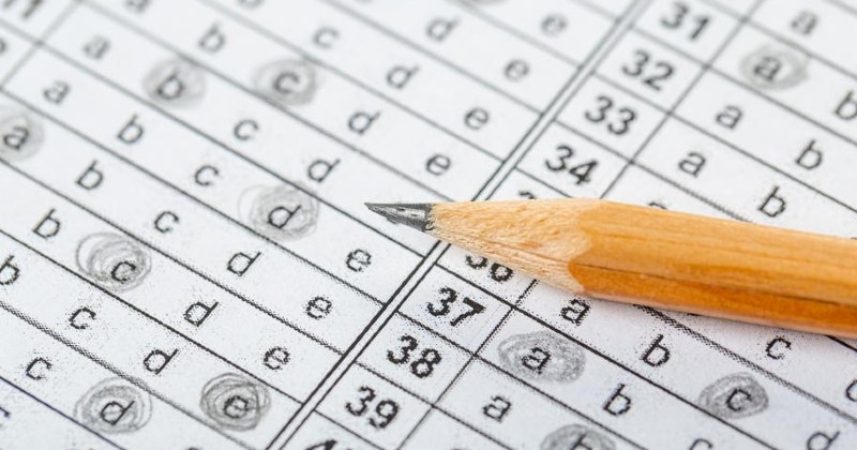Dartmouth College is making news regarding its return to using the SAT/ACT scores once again as a part of its admissions process. The policy will become effective in 2025 for the incoming class of 2029.
Many colleges and universities decided to make the SAT/ACT test-optional during the COVID-19 pandemic when health protocols made taking these tests more difficult for students. This came on the heels of many years of pressure from those who believe that SAT and ACT tests are biased towards those who are wealthy and/or white, arguing that those who can afford SAT prep classes, tutoring, and books have an unfair advantage.
Dartmouth’s policy reversal came as the result of a faculty study composed of three economists and one sociologist. The professors compared the admissions data from the years when the standardized tests were optional with the data when the tests were required. They concluded that the scores were helpful in finding well-rounded, academically prepared students from diverse backgrounds.
Dartmouth President Sian Leah Birlock wrote the following in her email to the Dartmouth campus about the policy change.
SAT and ACT scores reflect inequality in society and in educational systems across the nation. The research does not dispute that. Crucially, though, the research shows that standardized test scores can be an important predictor of academic success at a place like Dartmouth and beyond—more so even than just grades or recommendations, for example—and with a test-optional policy, prompted by the pandemic, we were unintentionally overlooking applicants from less-resourced backgrounds who could thrive here.
Dartmouth economics professor Bruce Sacerdote, the co-author of the Dartmouth faculty study, concurred with this, saying in media interviews that not having the SAT scores means that they often overlooked students from disadvantaged backgrounds. For example, if a student scores at 1400 on the SAT and attends a school where scoring 1000 is more the norm, that demonstrates that a student is able to overcome difficult circumstances and a good indicator that the student can thrive at a place like Dartmouth.
Having SAT scores also allows admissions officers to take a second look at high schools that don’t often have students who apply to Dartmouth. “We find ourselves missing out on some great students, “ Sacerfote said. He also commented in the New York Times that the disadvantaged students who opted to not submit their test scores did so to their disadvantage.
Education policy expert Frederick Hess believes that the SAT and ACT scores are the best way to level the playing field in the fierce competition for admission to a prestigious university, arguing that it’s the well-heeled parents who will argue for grade inflation, assist with writing essays, and pay for tutors and consultants to pave the way to get through the admissions process. A standardized test allows for a more honest and impartial measure of a student’s capabilities. When a student takes the SAT or ACT, that person has to stand or fall on his or her own.
So what will Virginia’s top schools do? That remains the million-dollar question. Now that we have entered the post-pandemic world, will prestigious Virginia schools such as the University of Virginia, Virginia Tech, William and Mary, and Washington and Lee return to requiring the SAT or ACT test scores as a basis for admission?
The websites for Virginia’s equivalent of the Ivy League – University of Virginia, Virginia Tech, William and Mary, and Washington and Lee – all continue to state that they are “test-optional” when it comes to submitting standardized test scores. The University of Virginia’s website says it will still be “test-optional” for admission for the fall of 2024 and the fall of 2025. Virginia Tech will also continue its test-optional policy through 2025. That could indicate that the test-optional policy may be a temporary measure.
But only time will tell if the test-optional trend will continue. There is no doubt that academic institutions will continue to evaluate whether making the SAT/ACT test-optional will bring in students that are a credit to the school academically while also meeting its diversity goals.
The Dartmouth study makes a thoughtful and reasonable argument that a return to the SAT is a help rather than a hindrance in attracting students from different backgrounds. It’s also worth noting that it was the Ivy League (Harvard University President James Conant) that created the forerunner of the SAT test. This opened up opportunities for the poor, immigrants, and minorities to be admitted to top colleges on the basis of merit rather than wealth and social position.
The Dartmouth study is a good first step in making merit the foremost consideration in the college admissions process. Let’s hope that Virginia’s universities will take note.
Nancy Almasi is a Researcher at the Thomas Jefferson Institute for Public Policy. She may be reached at Nancy@thomasjeffersoninst.org.






